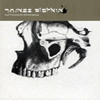 If a random Turkish-English dictionary isn't lying to me, then "kurtlanmak" is a word that can be translated as "become infested with worms" or "to become agitated... go stir crazy." The definition is fitting for the music. Kurtlanmak was originally released on Utech records in an edition of 200 copies; this release features a remastered version of that track and a dreary, visceral companion piece that slowly works its way into the body and begins to dissolve it.
If a random Turkish-English dictionary isn't lying to me, then "kurtlanmak" is a word that can be translated as "become infested with worms" or "to become agitated... go stir crazy." The definition is fitting for the music. Kurtlanmak was originally released on Utech records in an edition of 200 copies; this release features a remastered version of that track and a dreary, visceral companion piece that slowly works its way into the body and begins to dissolve it.
Utech
A still image of the desert, aside from the skeletal imagery that adorns the cover, is perhaps the best visual companion for these recordings. James Plotkin's music has always been deep and thrusting, pounding its way into my ears more than any drone music I've ever listened to. Perhaps this is because his discography is littered with and began with metal releases or perhaps it is because his music has always settled deep into my bones, sounding as elemental as it often does. The thought of the desert slowly wearing away homes or massive structures like pyramids immediately comes to mind after "Kurtlanmak" begins to blow through the speakers. Plotkin introduces the piece with a guitar that is still obviously a guitar, but he doesn't allow it to exist for long before the hums and heavy moans of processed sound become the dominant factor in the music. The sound of glass forming and breaking soon features heavily in the mix. Having introduced these elemental pieces of his work, he begins to cut them together in strange and unexpected ways, making edits where I least expect them to pop up. There are drones all over this record, but it isn't merely a piece of drone composition. There is far more noise, a far more dynamic range involved through this songs half hour duration.
The presence of a recognizable guitar on "Kurtlanmak" makes both the melody it brings to the fore and the other elements of the piece stronger and more effective. After a while it's hard to imagine that the two seemingly opposite expressions of music aren't more related than they might seem at first. The gnarled, twisted guitar that appears most strongly at the conclusion of the piece has the same distant and alien qualities that the drones and noises exhibit. The twisted playing that he delivers lightens the mood of this piece a bit, but only gives way to the destitution of "Damascus."
This is a piece that works its magic by delivering recognizable bits of music as slowly as possible. Melodies emerge over minutes instead of seconds, slowly building a tension that cannot be ignored. The last ten minutes or so bring the additional surprise of percussion, banging out a shaking, almost ritualistic pattern of cymbals and low-end tom punches. It's a majestic track that evolves nearly perfectly, surpassing "Kurtlanmak" in some ways, despite the fact that it may be less diverse on the whole. After the piece has revealed itself as a consistent and thoughtful whole, it becomes even more attractive for its quiet nooks and crannies: knowing where the journey is ultimately headed makes the atomic pieces of the puzzle all the more attractive.
samples:
Read More

